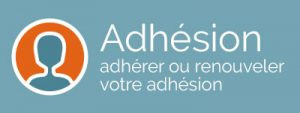Bonjour,
je suis très heureux de vous annoncer que l’unité sur Guy Brousseau dans le projet ICMI AMOR est complète avec ses 12 modules. Voir https://www.mathunion.org/icmi/awards/amor/guy-brousseau-unit
Merci et bravo à Claire Margolinas et Annie Bessot pour ce travail.
Je vous signale également que l’unité sur Ubiratan D’Ambrosio vient d’être finalisée avec ses 11 modules. Voir https://www.mathunion.org/icmi/awards/amor/ubiratan-dambrosio-unit. Merci à Milton Rosa et Daniel Clark Orey
Et bien sûr les 5 autres unités complètes sur Michèle Artigue, Yves Chevallard, Celia Hoyles, Terezinha Nunes et Anna Sfard.
Par ailleurs, nous animerons un Discussion Group à ICME-15 pour débattre du concept de ICMI AMOR et de ses usages, nous espérons vous y retrouver nombreux-ses.
ICMI Awardees multimedia online resources (AMOR):
making the main trends in math education more visible
Jean-Luc Dorier – ICMI Secretray-General – University of Geneva (Switzerland)
Michèle Artigue – University Paris Cité (France)
Marianna Bosch – University of Barcelona (Spain)
Marta Civil – University of Arizona (USA)
Núria Planas– Autonomous University of Barcelona (Spain)
Milton Rosa – Universidade Federal de Ouro Preto (Brazil)
It is important for the mathematics education community to build online resources reflecting highly significant and influential research in mathematics education at an international level. This could serve as a reference not only for researchers, but also for educators, teachers, curriculum developers and policy makers and other agents in the field. In particular, such a project could serve as a basis for a PhD training program and induction into mathematics education research.
ICMI was formed more than a century ago. Yet, mathematics education research does not have an equally long history and is a rather young field of research, with its roots often embedded in local contexts, but also in international events like the International Congress on Mathematics Education that has been held since 1969. However, the field is now at a turn of its history when there is a need for a set of references with theories, methodologies, results and fields of investigation that the community can claim as the most important trends.
Of course, this begs the question as to how to select which are the most important trends to be represented, at least initially. Since 2003, ICMI has honored outstanding individuals with three awards: the Felix Klein, the Hans Freudenthal and the Emma Castelnuovo (https://www.mathunion.org/icmi/awards/icmi-awards). Therefore, to build our resources ICMI has decided to focus on each ICMI Awardee, through what has been called the Awardees Multimedia Online Resources (AMOR) project https://www.mathunion.org/icmi/awards/amor
Session 1
This first session is devoted to the origin and elaboration of the project, its value and strong points, and its challenges and possible improvements.
- Origin of the project (10 min) (Jean-Luc Dorier)
- Genesis of the project (15 min) (Michèle Artigue and Marianna Bosch)
- Presentation of different units of the project with a selection of short extracts of videos (Michèle Artigue for her unit, Jean-Luc Dorier for Brousseau’s unit, Marianna Bosch for Yves Chevallard’s unit, Milton Rosa for Ubiratan D’Ambrosio’s unit, Jean-Luc Dorier for Celia Hoyles’ unit, Milton Rosa for Terezinha Nunes’ unit, Jean-Luc Dorier for Anna Sfard’s unit) (30 minutes)
Open discussion on the following issues (35 min):
- What are the pros and cons of the format of the project?
- What does it allow in terms of the initial objectives (creating a reference for our community)?
- What does it miss? How could it be improved?
- How could we have more units? How could the project team be reinforced?
- How could we reach more people? How could we advertise?
- Should the format of the project evolve? In what way?
Session 2
This second session will be devoted to presenting some uses of AMOR and a discussion on other possible uses and what needs to be done to increase and improve its impact.
The session will start with some reports of people who have used the AMOR project during PhD programs or teachers’ training sessions and the way they used it. (45 min)
Open discussion on the various examples, other possible uses and perspectives (45 min)
The project ICMI AMOR requires support from a dedicated team. New comers are very welcome and are encouraged to contact one of the team members.


